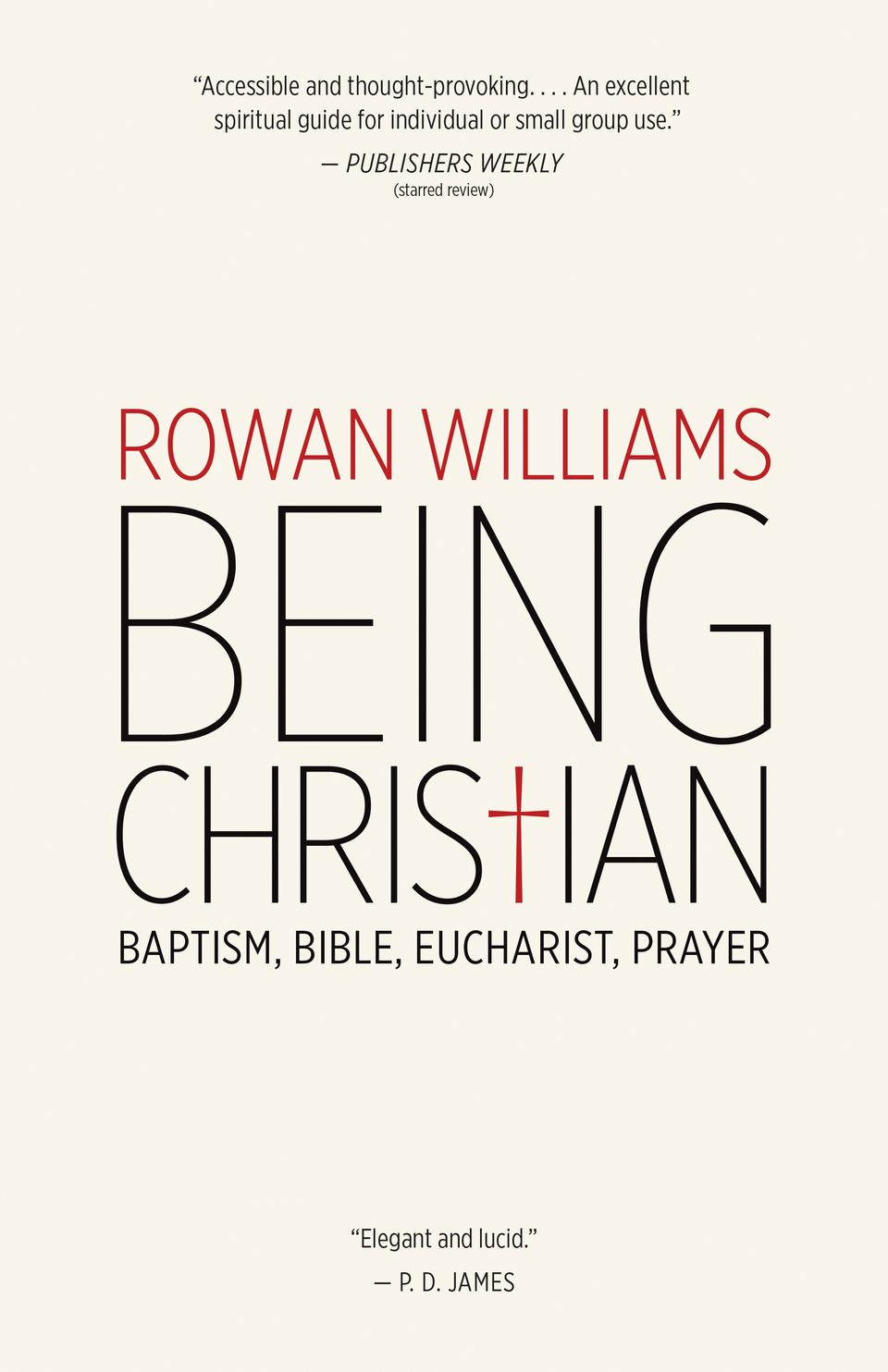Being Christian - Rowan Williams

This is the first in a three-part series of posts dealing with Rowan Williams' triptych of "being" books. Being Christian, Being Disciples, and Being Human.
The aim of Being Christian is a simple task: to describe four fundamental acts that all Christians hold in common. Of course, the topic is a complex one making this task more difficult than it might first seem. I am glad to report that Rowan Williams manages to carry of the task in a pleasant, accessible book ideal for small group discussion or as a tool for personal reflection.
Williams has selected four of the most enduring and obvious practices that Christians share: Baptism, reading the Bible, celebrating eucharist, and prayer. These are also four practices which Christians do together, which is critical to keep in mind while engaging with Williams' reflections and on the development of the triptych of books. Christianity is always practiced in community, large or small though it may be, and this is fundamental to understanding these practices better.
Also important to Williams is the idea of transformation or conversion of life. Growth and development through these four fundamental practices is a running theme in this book. This is, after all, one of the foci and goals of Christianity. Without making it a standalone chapter, the theme will return again and again, such as in this comment in the chapter on eucharist:
Jesus is not only someone who exercises hospitality; he draws out hospitality from others. By his welcome he makes other people capable of welcoming.
The style of writing is approachable, accessible, but not without depth. Williams does not shy away from difficult topics and the real consequences of being a Christian:
The new humanity that is created around Jesus is not a humanity that is always going to be successful and in control of things, but a humanity that can reach out its hand from the depths of chaos, to be touched by the hand of God. And that means that if we askt heq uestion, 'Where might you expect to find the baptized?' one answer is, 'In the neighbourhood of chaos'. It means you might expect to find Christian people near to those places where humanity is most at risk, where humanity is most disordered, disfigured and needy. Christians will be found in the neighbourhood of Jesus — but Jesus is foundin the neighbourhood of human confusion and suffering, defencelessly alongside those in need.
Each chapter concludes with a few suggested questions for reflection or discussion. These are genuinely helpful prompts that foster further consideration of the key concepts in each chapter. Good for individual reflection and helpful aids if the book is being used as part of a group study.
Whilst writing about things that Christians hold in common, Williams writes from his own Anglican perspective and experience. This is a delight for Canadian Anglicans, like me, who use this book in teaching and discussion contexts. So often we must use Roman Catholic resources, or those from Protestant churches, and a great deal of ecclesiastical "translation" is required. This book feels very comfortable and "at home" in a Canadian Anglican context.
Being Christian is an affordable, approachable book that is well-written and reveals great depths to be explored. If you've not read it, I highly recommend it. If you've read it before, it might be worth another go.





